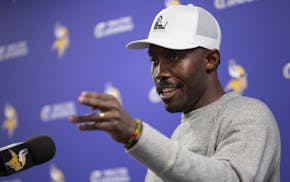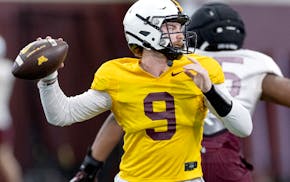The NCAA Board of Directors could pass a new measure on Thursday that changes how schools feed athletes.
Current NCAA rules mandate that programs provide three meals per day plus nutritional supplements and snacks. If the new standard passes, schools will have to supply unlimited meals and snacks.
NCAA President Mark Emmert is in favor of the change.
"The biggest problem was, the NCAA has historically had all kinds of, I don't know how to describe it [except to say] dumb rules about food," Emmert said on ESPN Radio's "Mike & Mike" show. "The infamous one is you can provide between meals a snack but you can't provide a meal.
"Well, then you got to define what's the difference between a snack and a meal? So it was literally the case that a bagel was defined as a snack — unless you put cream cheese on it. Now it becomes a meal. That's absurd."
The new rules, which would feed athletes year-round, would go into effect Aug. 1.
The issue came to the forefront after some highly publicized comments by Connecticut basketball star Shabazz Napier during the NCAA tournament.
"I don't feel student-athletes should get hundreds of thousands of dollars, but like I said, there are hungry nights that I go to bed and I'm starving," Napier told reporters then.
The University of Minnesota has declined to comment until the measures are official.
The meals rule is only one of the proposals to be considered Thursday, a day that could reshape college sports.
The agenda also includes debate over a new governance structure that would allow the five biggest football conferences to implement some legislation on their own, expand meal plans and change transfer rules.
Emmert, in a Wednesday interview with the Associated Press, said he would like to address the concerns of union organizers without changing the entire NCAA.
Under a proposed new governance structure, the richest sports programs would have the autonomy to provide more money, counseling and perhaps protections to student-athletes. A formal vote on it is not expected until at least this summer.
The Associated Press contributed to this report.

Could the Vikings trade down in the first round of the draft? Here's what their GM had to say.

Gophers QB Pyron, a transfer from Georgia Tech, is re-entering the portal

RandBall: My long history of investing in bad baseball teams
